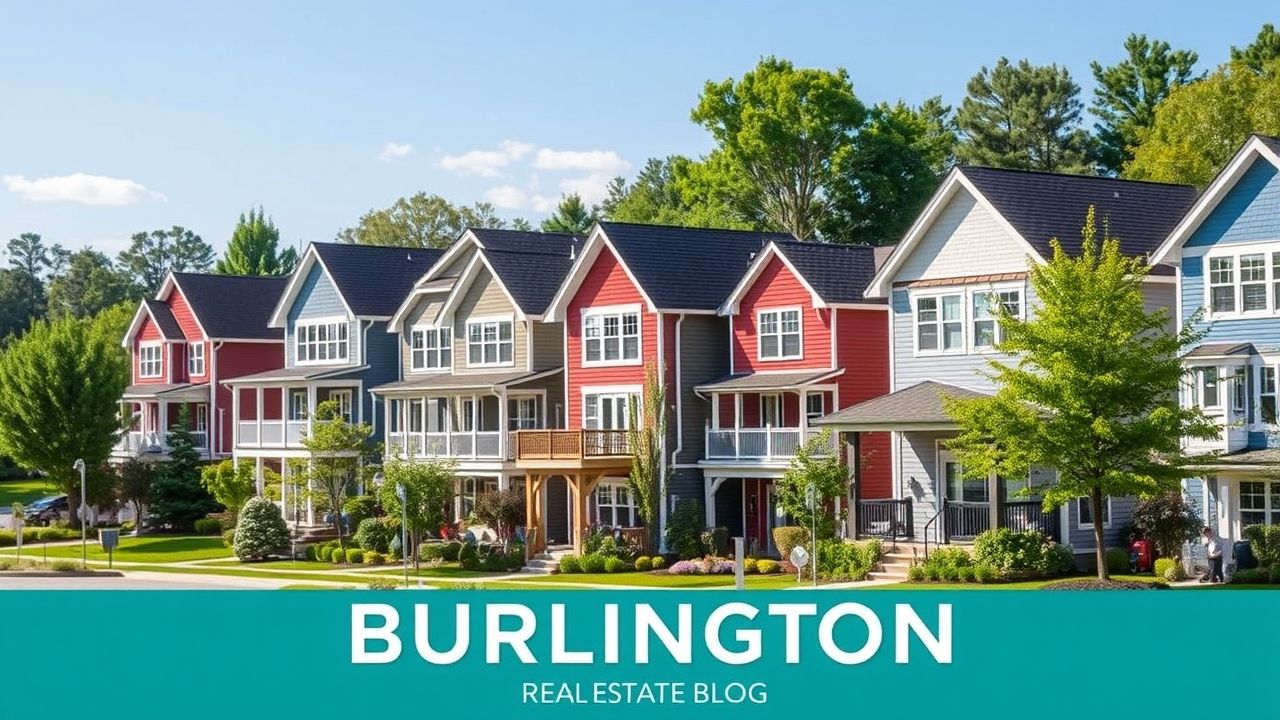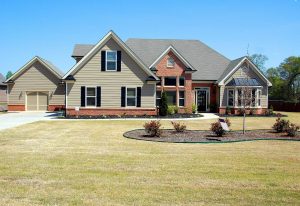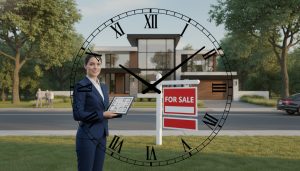Selling Your Home in Guelph: A Step-by-Step Guide to a Successful Sale (2026 Edition)
Your complete, keyword-optimized guide to selling your home fast and for top dollar in Guelph, Ontario.
Selling your home is one of the biggest financial decisions you’ll make—and doing it right can mean thousands of extra dollars in your pocket. The Guelph real estate market continues to attract families, investors, and first-time buyers because of its strong economy, excellent schools, beautiful neighbourhoods, and high quality of life.
If you’re thinking about selling your home in Guelph, this step-by-step guide walks you through everything you need to know—from understanding the current market to closing day—so you can sell confidently and successfully.
1. Understand the Guelph Real Estate Market
Before you list your home, you need a clear picture of what’s happening in the local market. Guelph is known for its stable, in-demand housing market driven by:
-
Strong job growth
-
High student population (University of Guelph)
-
Fast-growing families and newcomers
-
Limited housing inventory
-
High demand for detached homes and townhomes
Real estate conditions can vary significantly between neighbourhoods like Kortright Hills, Westminster Woods, Riverside Park, Guelph Village, and the Downtown Core. Prices also shift based on:
-
Square footage
-
Lot size
-
Age and condition of the home
-
Nearby schools and amenities
-
Market cycles
Working with a knowledgeable Guelph real estate agent gives you insider insight on local pricing trends, supply and demand, and how buyers are behaving right now.
👉 A local expert like Tony Sousa – The SousaSells.ca Team can help you analyze your neighbourhood, recent sales, and market timing so you list with confidence.
2. Set the Right Price (The Backbone of a Successful Sale)
Pricing your home correctly is one of the most critical steps in the entire selling process. Overpricing leads to fewer showings and a stale listing. Underpricing leaves money on the table.
To price your home accurately, your agent should prepare a Comparative Market Analysis (CMA). This report looks at:
-
Similar homes that recently sold
-
Homes currently listed
-
Homes that failed to sell (important!)
-
Local market trends
-
Your home’s unique features
A well-priced home:
-
Attracts more serious buyers
-
Generates stronger offers
-
Sells faster
-
Reduces the need for price reductions
Remember: The market—not the seller—determines the value of a home. Your job is to position it properly.

3. Prepare Your Home for Sale (Your ROI Power Move)
First impressions sell homes. Buyers decide within seconds if they like a property.
Here’s how to prepare your home so it stands out:
✔ Deep Clean
Clean every surface. This includes:
-
Baseboards
-
Windows
-
Appliances
-
Floors
-
Bathrooms
-
Carpets
A spotless home feels cared for—buyers pay attention.
✔ Declutter
Remove:
-
Personal items
-
Excess furniture
-
Photos, memorabilia
-
Pet toys/food bowls
-
Bulky décor
The goal: make rooms look open, bright, and spacious.
✔ Repairs & Light Updates
Small fixes have a big impact:
-
Patch wall dents
-
Fix loose handles
-
Replace burnt-out bulbs
-
Repair leaky faucets
-
Update cabinet hardware
-
Add a fresh coat of neutral paint
These improvements make your home feel “move-in ready,” which today’s buyers love.
✔ Stage Your Home
Home staging highlights your home’s best features and helps buyers visualize living there.
Staging can:
-
Make rooms appear larger
-
Highlight flow and function
-
Create emotional connection
-
Increase perceived value
If possible, consider hiring a professional stager.
4. Market Your Property Effectively
Marketing is what brings buyers through your door. You need a strategy that puts your home in front of as many qualified buyers as possible.
Here’s what top-tier marketing looks like:
✔ Professional Photography
Listings with high-quality photos get:
-
More online views
-
More scheduled showings
-
Higher perceived value
A good photographer will capture:
-
Bright, wide-angle interior shots
-
Stunning exterior images
-
Key features like kitchens, bathrooms, and yard space
✔ Online Listings (MLS + Realtor.ca)
Most buyers find their next home online, so your listing must shine.
Your Guelph home should appear on:
-
MLS
-
Realtor.ca
-
SousaSells.ca
-
National real estate search portals
-
Local community platforms
✔ Social Media Marketing
Platforms like:
-
Facebook
-
Instagram
-
TikTok
-
YouTube
-
LinkedIn
…allow you to reach thousands of buyers instantly. Video tours, listing reels, and paid ads can increase exposure dramatically.
✔ Open Houses & Private Showings
These give buyers the chance to explore the home in person. For best results:
-
Keep your home clean
-
Remove valuables
-
Ensure lighting is bright
-
Create a welcoming atmosphere
A busy open house creates urgency—buyers feel the competition.
✔ Local Community Marketing
Neighbourhood groups, community boards, and targeted Guelph audiences are often full of potential buyers or people who know one.
5. Negotiate Offers and Choose the Best One
Once the offers come in, it’s time to negotiate like a pro.
Things to consider:
-
Sale price
-
Closing date
-
Deposit amount
-
Conditions (financing, inspection, home sale)
-
Buyer flexibility
-
Strength of financing
The highest offer isn’t always the best. Some offers fall apart because of:
-
Unmet financing
-
Low deposit
-
Complicated conditions
Your agent will help you break down every detail so you make the most secure and profitable choice.
6. Complete the Sale (Paperwork, Closing & Legal Steps)
After accepting an offer, you’ll move into the final stage of selling your home.
This includes:
-
Signing the Agreement of Purchase and Sale
-
Providing required disclosures
-
Cooperating with home inspections
-
Finalizing buyer conditions
-
Working with your lawyer
-
Confirming closing details
On closing day, the buyer’s lawyer transfers funds, your lawyer transfers ownership, and you hand over the keys.
Congratulations—your home is officially sold!

7. Understand Taxes and Fees When Selling a Home in Guelph
Selling a home comes with several fees sellers should prepare for:
✔ Real Estate Commission
Sellers typically pay the commission for:
This is usually a percentage of the sale price, agreed upon in advance.
✔ Capital Gains Tax
If the property is not your primary residence, you may owe tax on the profit.
Speak with a tax professional for accurate guidance.
✔ Legal Fees
These cover:
-
Title transfer
-
Mortgage discharge
-
Document preparation
✔ Additional Costs
Depending on your situation:
-
Staging fees
-
Repairs
-
Upgrades
-
Pre-listing home inspection
-
Mortgage penalties (if breaking a term early)
Planning ahead helps avoid surprises on closing day.
Final Thoughts: Sell Smarter, Not Harder
Selling your home in Guelph is a major financial decision. By following this guide—understanding the market, pricing effectively, preparing your home, marketing it professionally, and negotiating wisely—you set yourself up for a smooth, successful sale.
If you want a stress-free, expertly managed selling experience…
Work with a Top Guelph Realtor
Tony Sousa and The SousaSells.ca Team specialize in helping Guelph homeowners sell faster and for more money—backed by proven marketing, expert negotiation, and a smooth client experience.
➡ If you’re thinking about selling your home in Guelph, Tony Sousa is here to help.
Get a free home evaluation or selling strategy consultation today.
Frequently Asked Questions About Selling Your Home in Guelph (FAQ)
1. How long does it take to sell a home in Guelph?
In most cases, a well-priced and properly marketed home in Guelph sells within 2–4 weeks, depending on the neighbourhood and market conditions. Homes in high-demand areas like Kortright Hills, Westminster Woods, and Clairfields can sell even faster. Pricing and presentation play the biggest role in how quickly your home sells.
2. What is the best time of year to sell a house in Guelph?
The most active selling seasons in Guelph are spring (March–June) and fall (September–November). These periods typically attract more buyers, resulting in stronger competition and higher sale prices. However, because Guelph has year-round demand, homes can still sell successfully in winter with the right strategy.
3. Do I need a real estate agent to sell my home in Guelph?
Technically, no—you can list privately.
However, most homeowners choose to work with a licensed Guelph realtor because they provide:
-
Accurate pricing strategies
-
Professional marketing
-
Staging and preparation advice
-
Negotiation expertise
-
Legal guidance and paperwork support
Homes listed with a professional agent typically sell faster and for more money.
Working with a local expert like Tony Sousa can significantly improve your selling results.
4. How much does it cost to sell a house in Guelph?
Common selling costs include:
-
Real estate commissions
-
Legal fees ($1,000–$2,000 on average)
-
Staging or cleaning (optional)
-
Repair or improvement costs
-
Mortgage discharge fees (if applicable)
-
Potential capital gains tax (if not your primary residence)
Your exact costs will depend on your situation and the condition of your home.
5. Should I renovate before selling my home?
Not always.
Small improvements like:
-
Fresh paint
-
Updated lighting
-
Landscaping
-
Minor repairs
can offer a strong return on investment.
However, major renovations—like finishing a basement or remodeling a kitchen—may not provide enough ROI to be worthwhile right before selling.
Your realtor can help you decide which updates matter most in your neighbourhood.
6. How do I know what my home is worth in Guelph?
The best way is to get a Comparative Market Analysis (CMA) from a local real estate agent. This report compares your home to similar recently sold properties to determine a competitive, accurate listing price.
Online estimators can be a starting point, but they often miss key factors like upgrades, location specific features, and buyer demand.
7. What should I do to prepare my home for showings?
Before each showing, make sure your home is:
-
Clean and clutter-free
-
Bright (open blinds, turn on lights)
-
Comfortable and inviting
-
Free of strong smells
-
Free of personal items and valuables
First impressions matter—buyers decide quickly if they see themselves living in your home.
8. Do homes in Guelph require a pre-listing home inspection?
A pre-listing inspection is optional but can be beneficial. It helps:
-
Identify repair needs early
-
Avoid surprises during buyer inspections
-
Build buyer trust
-
Speed up negotiations
It’s especially useful for older homes.
9. What happens after I accept an offer?
After you accept an offer, the process typically includes:
-
Buyer inspections (if included)
-
Financing approval
-
Lawyer review and paperwork
-
Condition removal
-
Final walkthrough
-
Closing day (ownership transfer and key handoff)
Your realtor and lawyer will guide you through each step to ensure everything goes smoothly.
10. What taxes apply when selling a home in Guelph?
In most cases, Ontario sellers do not pay land transfer tax—buyers do.
However, you may pay:
-
Capital gains tax if the home is not your primary residence
-
HST on real estate commissions
-
Mortgage discharge fees
Always consult a tax professional for accurate advice.
11. Do I need to be out of the house for showings?
Yes, it’s strongly recommended. Buyers feel more comfortable viewing a home privately, and your absence allows them to visualize the space as their own. It also helps prevent awkward conversations or missed feedback opportunities.
12. What makes Guelph a strong market for sellers?
Guelph consistently ranks as one of Ontario’s most desirable mid-sized cities thanks to:
-
A low crime rate
-
Strong schools
-
Excellent transit and infrastructure
-
A thriving job market
-
High student population
-
Limited supply and high demand
These factors help maintain stable property values and attract a wide range of buyers.





















